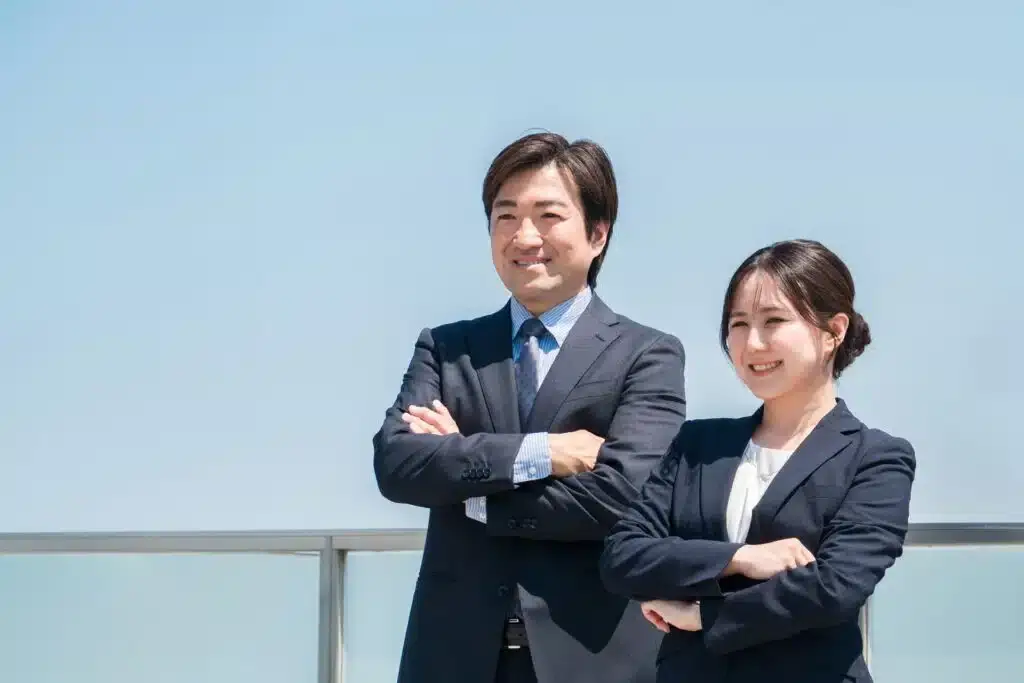Benefits and Procedures of Conducting Business Succession through M&A

In Japan, where small and medium-sized enterprises are prevalent, many business owners are grappling with the issue of business succession. So, what forms of business succession are recognized under Japanese law? Let’s introduce these forms along with their merits and legal measures.
When we hear “business succession,” we often imagine the business being passed on to the children or relatives of the business owner. However, it is also possible to pass on the business to a third party who is not a relative. In particular, in the case of hospitals (clinics), there are restrictions that only qualified individuals such as doctors and dentists can take over the business. Therefore, if children or relatives do not have the necessary qualifications, the business must be passed on to a third party who is not a relative.
When passing on a business to a third party who is not a relative, there are many factors to consider, such as the succession of employees and major clients. In the case of a corporation, the method of stock succession is also important. Let’s start by explaining about “M&A”.
Difference between M&A and Business Succession
First and foremost, M&A and business transfer are different concepts. We will explain their respective meanings and the relationship between the two.
What is M&A?

M&A stands for Mergers & Acquisitions, which translates directly to “mergers and acquisitions”. In essence, M&A refers to the transfer of management rights of a company or business entity to a third party. M&A methods include organizational restructuring procedures stipulated by the Japanese Companies Act, such as merger procedures, as well as stock transfers and business transfers carried out by individual contracts between sellers and buyers.
As mergers as organizational restructuring require complex procedures stipulated by the Japanese Companies Act, they are primarily for large corporations. For small and medium-sized enterprises (SMEs) and hospitals, which are small business operators, it is common to use business transfers or stock transfers when conducting M&A.
What is Business Succession?
In contrast, business succession refers to the transfer of a business to someone other than the current manager. Business succession is not strictly defined as a legal term, and it is usually referred to as business succession when the president’s seat is handed over to a successor due to the retirement of the manager.
Therefore, business succession does not necessarily become M&A. M&A is positioned as one of the methods for business succession.
Examples of business succession that do not become M&A include cases where a successor is appointed as the representative director without a stock transfer. Also, when business succession is carried out by a will, it is not based on a contract, so it does not strictly fall under M&A.
Benefits of Conducting Business Succession through M&A

Recently, due to the aging of small and medium-sized business owners and hospital managers, and the lack of successors, the way of business succession is attracting attention. Some businesses have no choice but to close down without undergoing business succession.
However, in cases where the business itself has social significance or deals with cutting-edge technology, it is often better to consider continuing the business. In such cases, the current owner may retain the shares and only hand over the position of representative director to the successor, or they may transfer all, including the shares, to the successor.
In the latter case, where everything including the shares is transferred to the successor, it is necessary to carry out a “stock transfer”. Also, if a successor cannot be found, the business may be transferred to a buyer through M&A, introduced by M&A brokerage firms or banks.
The benefits for the seller in selling a business through M&A are as follows:
- It can solve the problem of finding a successor
- It can maintain employment for the employees
- It can generate a profit from the sale
If you sell your business to another business operator through M&A, there is no need to select and educate a successor. For founders who have started a business from scratch, it is not uncommon to feel that they cannot find a successor who surpasses their own abilities. Also, there may be cases where their children refuse to take over the business.
If you want to continue the business even if there is no successor, you can solve this problem by selling the business to another business operator.
Also, by continuing the business through M&A, there is a higher possibility of protecting the employment of the employees. However, whether the employment of the employees is completely protected depends on the method of M&A adopted. We will explain this aspect of labor management in detail later.
In addition, another benefit is that if the shares are transferred to a third party buyer through M&A, the manager who was a shareholder can receive the transfer price of the shares.
Legal Measures for Business Succession through M&A
Conducting business succession through M&A has many advantages, such as solving the problem of successor shortage. Therefore, it is expected to increase in the future. In this regard, we will explain the points to be careful about in terms of legal affairs when actually conducting business succession as M&A.
Stock Succession
In cases where a company is fully transferred to a third party through M&A, the method of stock transfer is commonly used. Stocks represent the control of the company itself, so by transferring them to the buyer, the company completely leaves the hands of the original management and is transferred to the buyer.
A common issue when transferring stocks in M&A is when there is no record within the company of who the shareholders are. Under the Japanese Companies Act, it is obligatory to create a shareholder register, but surprisingly, many small and medium-sized enterprises that are not considering going public do not properly maintain a shareholder register.
In cases where a company has been in operation for many years or is a family-owned business, it is not uncommon for family members and acquaintances to hold shares in the company. There may also be cases where the original shareholder has passed away and inheritance has occurred.
When transferring stocks, it is necessary to first identify “who” holds “how many” stocks. If the company has no record of transferring stocks to a third party and does not know who they were transferred to, it will not be possible to carry out M&A through stock transfer. In this case, if you want to carry out business succession, you will have to choose business transfer.
For more detailed explanations of the advantages and disadvantages of business transfers, please refer to the following article.
Even if the shareholders can be identified, there is a risk that they may not agree to the transfer of shares if someone other than the manager holds the shares. Therefore, when using shareholder transfer as a method of M&A, it is necessary to confirm in advance whether the current shareholders will agree to the transfer of shares.
Legacy Portion Measures

The legacy portion refers to a certain percentage of the inheritance that is legally guaranteed to be acquired by some of the statutory heirs. For example, even if there is a will stating “All inheritance property will be inherited by A,” statutory heirs (excluding the siblings of the deceased) can claim money equivalent to the legacy portion, which takes precedence over the will.
This right to claim money equivalent to the legacy portion is called a claim for the amount of legacy portion infringement. This claim is equivalent to what was previously called a claim for reduction of the legacy portion. The right to claim for reduction of the legacy portion was changed to the right to claim for the amount of legacy portion infringement by the revised Inheritance Law enacted in July 2019 (Gregorian calendar year).
Business succession to some family members and the legacy portion are deeply related. For example, suppose a parent who is a business owner passes on all company shares and real estate to the eldest son, who is the successor, through a will or gift during their lifetime. Even in this case, under the Civil Code, other heirs can exercise the right to claim for the amount of legacy portion infringement against the eldest son who inherited the property for the business.
In the case of the traditional claim for reduction of the legacy portion, exercising the right to claim had the effect of acquiring a co-ownership share of the subject matter (such as shares and real estate). However, even if the claim for the amount of legacy portion infringement is exercised after the amendment of the Inheritance Law, it does not affect the ownership of the subject matter, and it is sufficient to pay the money equivalent to the legacy portion.
Even so, if the successor of the company has to make a substantial payment to other heirs, it can be a significant obstacle to the survival of the company.
Therefore, if a company manager wants to pass on company shares and business real estate to the successor, it is essential to take “legacy portion measures.” There are several methods of legacy portion measures, but the most reliable is to ask the statutory heirs who have the right to the legacy portion to renounce the legacy portion during their lifetime.
Renunciation of the legacy portion during one’s lifetime requires a procedure in the Family Court. At that time, it will be examined whether the renunciation is based on the true intention of the person with the right to the legacy portion, so it is important for the parent who is a business owner to carefully explain the necessity of renouncing the legacy portion and obtain their understanding.
Also, when renouncing the legacy portion, the Family Court will check whether or not compensation equivalent to the legacy portion has been made to the person with the right to the legacy portion. Therefore, it will be necessary to provide some monetary compensation or assistance for tuition or wedding expenses to the person who is renouncing the legacy portion.
Labor Management

One of the biggest concerns when choosing business succession through M&A is the employment of the employees. After all, one of the reasons why business owners explore business succession instead of closing their companies is often the desire not to deprive their employees, who have dedicated themselves to the company for many years, of their jobs.
What happens to the employment of employees through M&A varies depending on the method chosen. In the case of stock transfer, which is often used in M&A of small and medium-sized enterprises, there is no impact on the employment contract. This is because the company itself continues to exist as it is, even if the shareholders change.
On the other hand, if you choose business transfer, there is a risk that the employment contract will be affected. Business transfer is a method of selling the business and assets owned by the company to another company individually. Therefore, it is necessary to go through the succession procedures individually in order to transfer the contractual relationship to the transferee company.
This is no exception for employment contracts, and in order for employees to continue to be employed at the transferee company, it is necessary to re-conclude an employment contract with the transferee company for each individual employee.
Therefore, if you want to protect the employment of employees when choosing a business transfer, you need to negotiate to include the following items in the business transfer agreement.
- Conclude a new employment contract between the selling company’s employees and the buying company for all employees of the selling company
- Do not change the employment conditions or job content for the time being after the business transfer
Contractual Relationship Succession
When you choose to transfer shares, the contractual relationships with your business partners, like employment contracts, are generally inherited. However, depending on the terms of the contract with your business partners, the act of transferring shares may be stipulated as a reason for contract termination. Therefore, it is essential to check the clauses of the contracts with key business partners you wish to continue dealing with during the due diligence process conducted before the share transfer.
On the other hand, in the case of business transfers, the trading relationships with the selling company are not naturally inherited. If you want to inherit certain business relationships, in addition to specifying them in the business transfer contract between the seller and the buyer, you also need to obtain individual consent from the business partners.
Summary
It is expected that the number of cases choosing M&A for business succession will continue to increase in the future. In the case of IT companies, M&A may be conducted as a method for the management to EXIT. We explain the details about EXIT by M&A in the following article.
In order to successfully carry out business succession, it is important for both the selling and buying companies to prepare sufficiently in advance. In particular, the procedure called due diligence (DD), which is conducted before the final agreement on the transfer, is extremely important.
As part of the due diligence, legal due diligence is conducted to thoroughly examine whether the succession of major transaction relationships and employment contracts is possible, and to confirm whether there is a risk of legal trouble arising from the M&A. The results of this due diligence are reflected in the final contract.
It can often be difficult to carry out these procedures quickly and accurately with just the personnel within the company. Therefore, if you want to ensure a successful business succession, you will need to consult with a lawyer who has extensive experience in corporate legal affairs and M&A.
Category: General Corporate
Tag: General CorporateM&A





















